What Is the Role of An Appropriate Adult During a Police Interview?
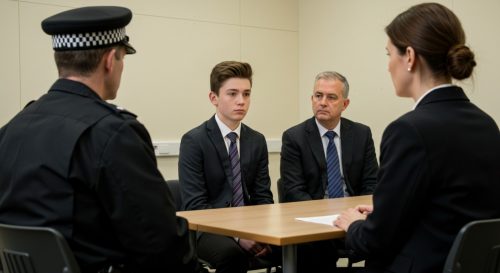
What Is the Role of An Appropriate Adult During a Police Interview?
The presence of an appropriate adult during a police interview plays a crucial role in ensuring fair treatment and protecting the rights of the detainee, particularly vulnerable individuals such as youths, individuals with mental health issues, and those with learning disabilities.
According to the Criminal Justice Act 2003, an appropriate adult is a person appointed to safeguard the interests, welfare, and rights of the detainee. The role of an appropriate adult encompasses various responsibilities, including providing support to the detainee, facilitating communication, ensuring compliance with procedures, and protecting the rights of vulnerable individuals.
They act as a vital link between the detainee and the police, offering guidance, support, and ensuring that the interview process is conducted fairly. Appropriate adults undergo specific qualifications and training to fulfil their role effectively.
Having an appropriate adult present during and after a police interview provides numerous benefits, such as ensuring a fair and unbiased interview process, protecting the detainee’s rights, and minimising the risk of coercion or misinformation.
What is an Appropriate Adult?
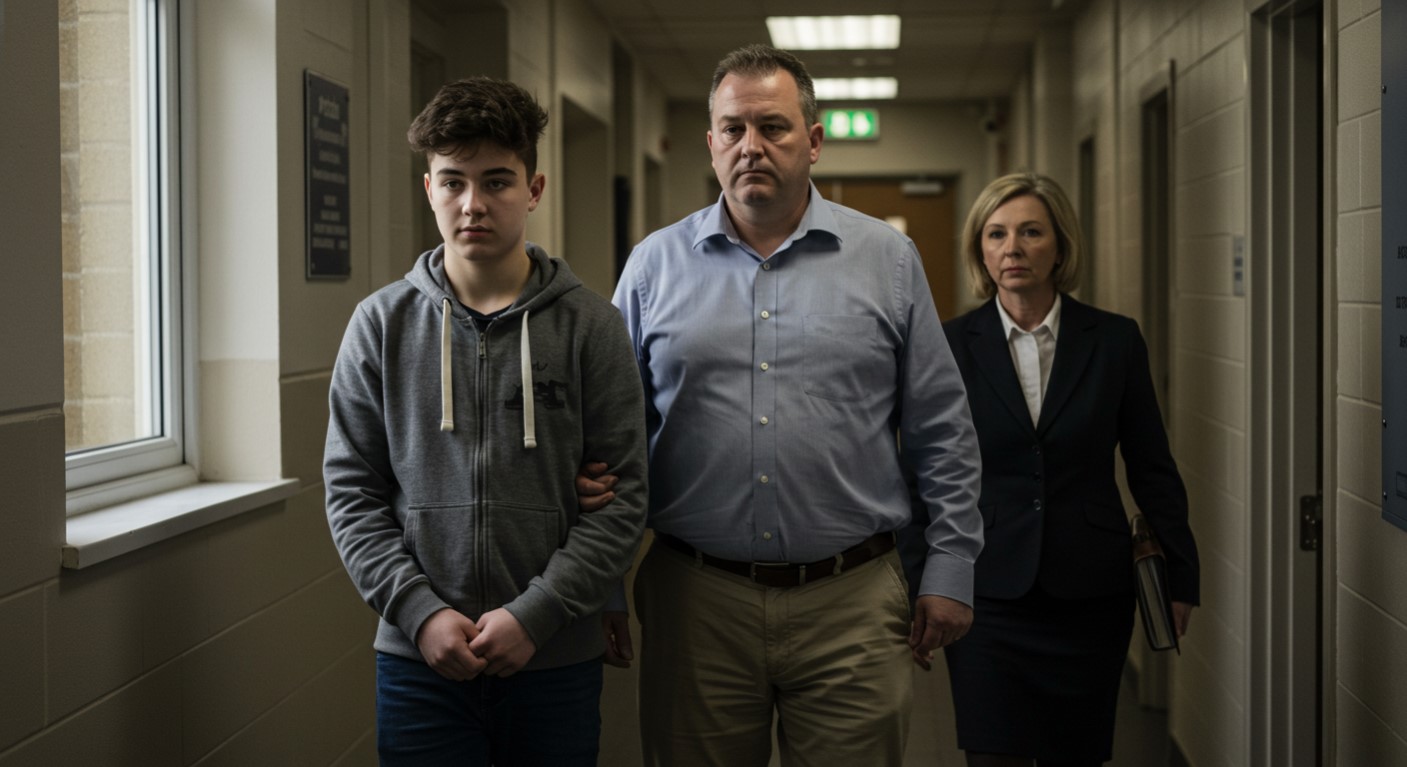
An appropriate adult is an individual who safeguards and advocates for the rights of vulnerable individuals, including children or those with mental health conditions, during police interviews. They play a crucial role in ensuring fair treatment and protecting their interests.
The appropriate adult ensures that the person being interviewed comprehends the procedure and their rights, providing necessary emotional support when required. This individual acts as a bridge between the interviewee and the police, promoting lawful and respectful conduct during the interview.
So, what exactly is an appropriate adult? They are someone who supports and safeguards vulnerable individuals during police interviews, ensuring their rights are upheld and giving them the necessary emotional support.
What is the Role of an Appropriate Adult during a Police Interview?
During a police interview, the presence of an Appropriate Adult plays a crucial role. They provide essential support to the detainee, ensuring fair treatment and compliance with procedures. By facilitating communication and understanding, they create a bridge between the detainee and the authorities.
Most importantly, they protect the rights of vulnerable individuals. With their expertise, the Appropriate Adult acts as a safeguard, ensuring that the interview process is conducted in a just and equitable manner.
Providing Support to the Detainee
- Listen actively and empathetically to the detainee, providing support and allowing them to express their thoughts and concerns.
- Provide emotional support, reassuring the detainee and alleviating their anxiety or stress.
- Offer practical assistance by helping the detainee understand the interview process and their rights, thereby providing support.
- Clarify any questions or uncertainties the detainee may have about the proceedings, while providing support.
- Advocate for the detainee, ensuring their needs and well-being are taken into consideration throughout the interview and providing support.
- Facilitate effective communication between the detainee and the police, ensuring the detainee’s rights are respected and providing support.
- Keep the detainee informed about the progress of the interview and any relevant information, while providing support.
- Protect the detainee from any potential coercion or mistreatment during the interview, providing support throughout.
- Attend to any special considerations or vulnerabilities the detainee may have, providing appropriate accommodations and support.
- Maintain confidentiality and protect the detainee’s privacy throughout the process, providing support.
Ensuring Fair Treatment and Compliance with Procedures
During a police interview, the role of an Appropriate Adult is to ensure fair treatment and compliance with procedures, thereby ensuring that the detainee’s rights are protected. They serve as an advocate for the detainee, ensuring that they understand the process and can fully participate in their defence.
By monitoring the interview and ensuring compliance with procedures, the Appropriate Adult helps to prevent any potential abuses or violations of the detainee’s rights, thus upholding the principles of justice and fairness in the interrogation process.
It is their responsibility to create a fair and transparent environment, in accordance with legal requirements, where the interview is conducted.
Facilitating Communication and Understanding
Facilitating communication and understanding is a vital role that an Appropriate Adult plays during a police interview. They assist the detainee in comprehending the questions being asked and ensure effective communication between the detainee and the interviewing officer.
This involves clarifying any complex legal language, helping with language barriers, and cultivating a respectful and supportive environment. By bridging the communication gap, the Appropriate Adult helps protect the rights of vulnerable individuals and ensures a fair and unbiased interview process.
Their presence fosters trust and cooperation, ultimately leading to the acquisition of more accurate and reliable information during the interview.
Protecting the Rights of Vulnerable Individuals
During a police interview, an Appropriate Adult plays a crucial role in protecting the rights of vulnerable individuals. They ensure that the detainee is treated fairly and in accordance with procedures.
The Appropriate Adult also facilitates communication and understanding between the detainee and the police, thereby protecting the rights of vulnerable individuals. This support system proves even more important if the detainee is a juvenile, has mental health issues, or learning disabilities.
By being present during the interview, the Appropriate Adult actively safeguards the rights of vulnerable individuals, ensuring they are not taken advantage of or subjected to any form of mistreatment.
When is an Appropriate Adult Required?
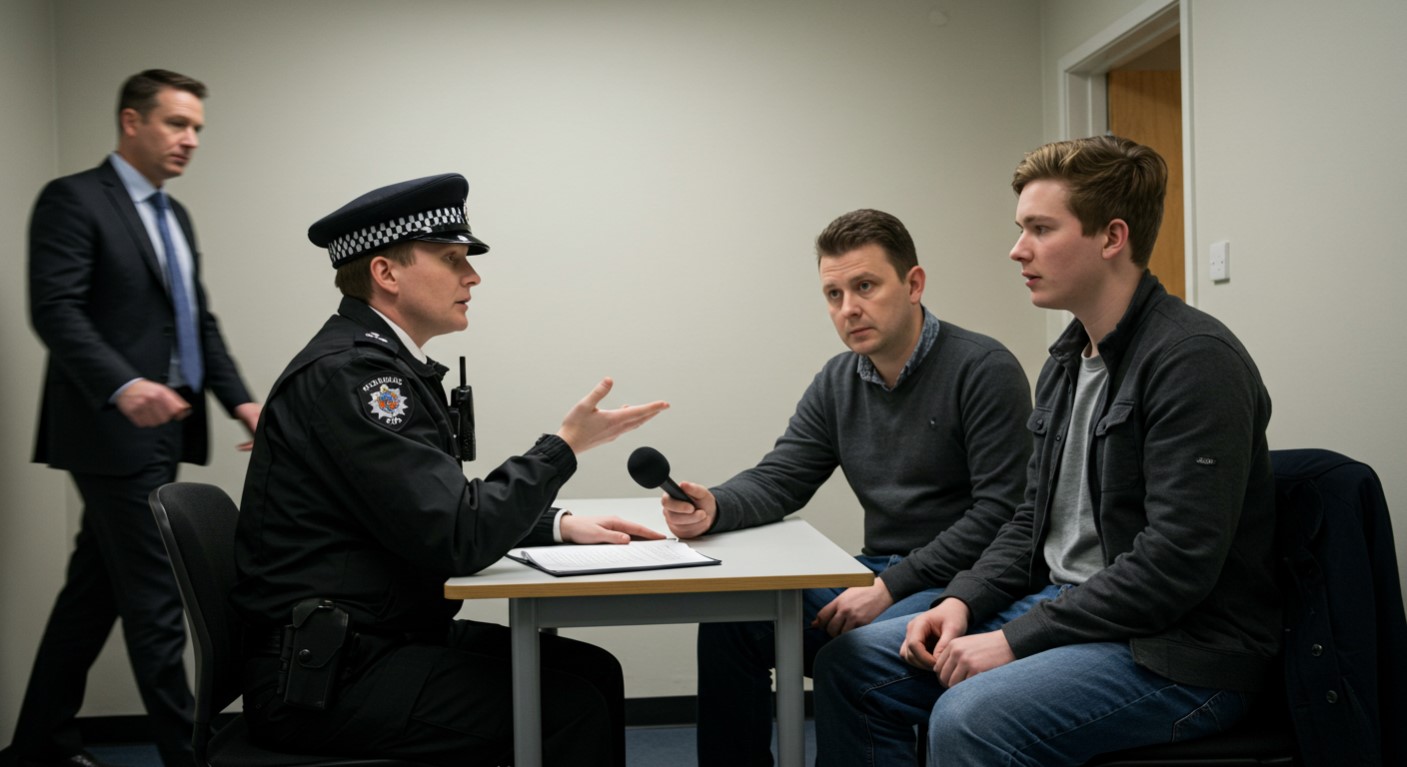
When it comes to understanding the role of an appropriate adult during a police interview, one key aspect to consider is when their presence is required. In this section, we will explore different scenarios that call for the involvement of an appropriate adult.
Whether it’s a situation involving a juvenile detainee, someone with mental health issues, or individuals with learning disabilities, each sub-section will shed light on the crucial role an appropriate adult plays in safeguarding the rights and ensuring fair treatment for these individuals.
When the Detainee is a Youth
When the detainee is a youth, it is required to have an appropriate adult present during a police interview.
This ensures that the rights of the youth are protected and that they receive fair treatment and support throughout the process. The presence of an appropriate adult when the detainee is a youth plays a crucial role in facilitating communication and understanding between the youth and the police, making sure that the interview is conducted in a way that is appropriate for their age and understanding.
Furthermore, when the detainee is a youth, the presence of an appropriate adult also helps to safeguard the welfare and well-being of the juvenile during the interview. They can provide emotional support and advocate for the youth’s needs and interests, ensuring that their voice is heard and that their rights are respected.
When the Detainee Has Mental Health Issues
When the detainee has mental health issues, it is crucial to have an appropriate adult present during a police interview. This ensures that their rights are protected and they receive the necessary support and accommodation. Here are the steps an appropriate adult takes when dealing with someone who has mental health issues:
- Assessing the detainee’s mental health status.
- Communicating with the detainee in a calm and understanding manner.
- Ensuring the detainee’s needs, such as medication or therapy, are met during the interview.
- Advocating for the detainee and ensuring their rights are respected.
- Providing emotional support and reassurance to help reduce anxiety or distress.
By having an appropriate adult present, when the detainee has mental health issues, their condition can be better understood and accommodated throughout the police interview process.
When the Detainee Has Learning Disabilities
When the detainee has learning disabilities, it is essential to have an appropriate adult present during a police interview. The presence of an appropriate adult ensures that the rights and needs of individuals with learning disabilities are protected.
They play a vital role in facilitating communication and understanding between the detainee and the police. The appropriate adult helps support the detainee, ensuring fair treatment and compliance with procedures.
They also provide necessary assistance and guidance, taking learning disabilities into account throughout the interview process. Having an appropriate adult present during a police interview helps ensure a fair and equitable process for individuals with learning disabilities.
What Qualifications and Training Do Appropriate Adults Have?
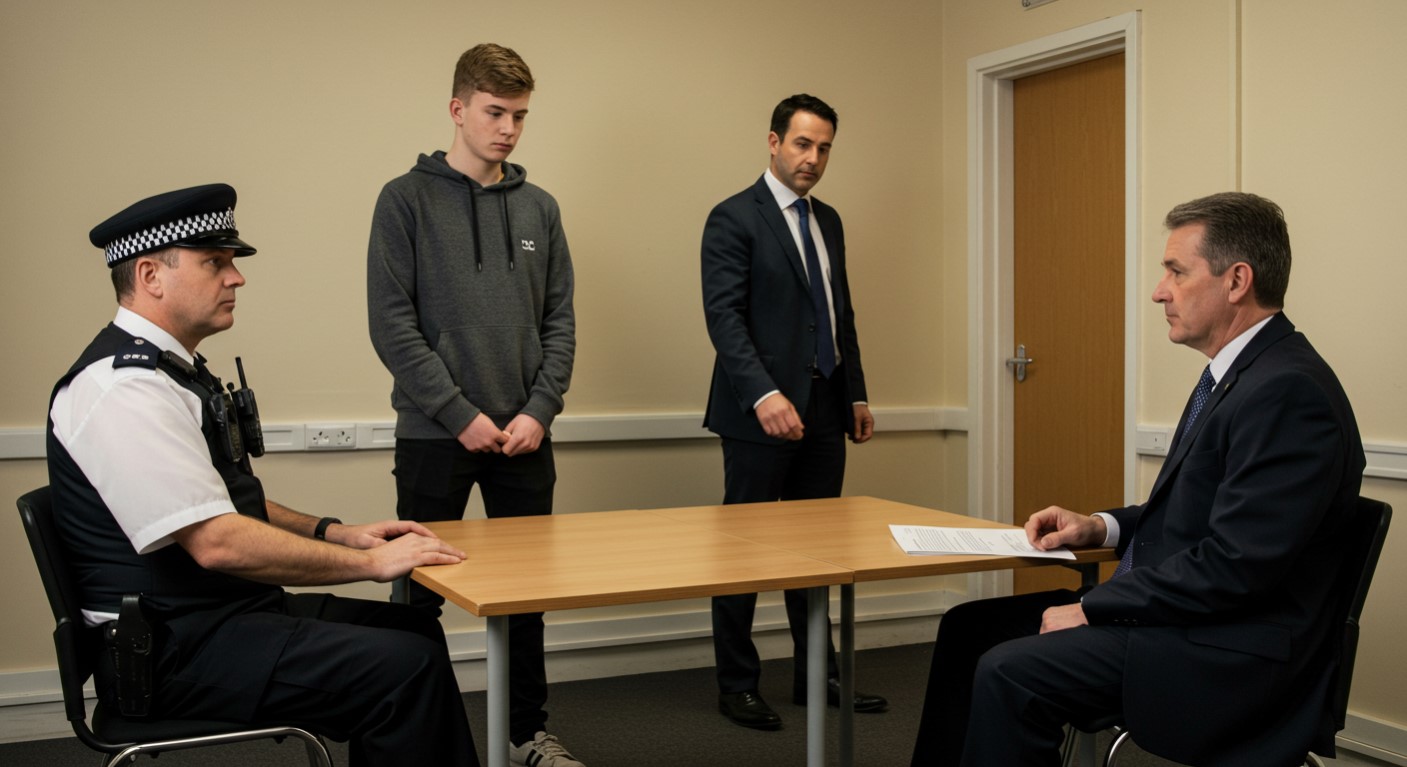
Appropriate adults play a crucial role in safeguarding vulnerable individuals during police interviews. They are typically volunteers or professionals with specific training and qualifications. So, what qualifications and training do appropriate adults have?
Their qualifications may vary depending on the jurisdiction, but they often include knowledge of relevant laws, policies, and procedures. Training may cover areas such as safeguarding, communication skills, and understanding the rights and needs of vulnerable individuals.
In order to ensure their suitability for the role, appropriate adults may undergo background checks and vetting processes. This ensures that they are equipped to provide effective support and advocate for the rights of vulnerable individuals during police interviews.
What Are the Rights of an Appropriate Adult?
During a police interview, an Appropriate Adult has a crucial role in safeguarding the rights and interests of vulnerable individuals. So, what are the rights of an Appropriate Adult, you may ask?
1. Right to be present: The Appropriate Adult has the right to be present during all stages of the interview.
2. Right to communicate: They have the right to communicate with the detainee privately, ensuring their understanding of the interview process.
3. Right to participate: The Appropriate Adult can intervene if they believe the detainee is being treated unfairly, ensuring their rights are protected.
4. Right to confidentiality: The Appropriate Adult has the right to keep all information disclosed during the interview confidential, unless required by law.
These rights ensure that the Appropriate Adult can fulfil their vital role in supporting vulnerable individuals during police interviews.
What Are the Responsibilities of an Appropriate Adult?
The responsibilities of an appropriate adult are essential during a police interview. Their main role is to ensure that the detainee fully comprehends their rights. Additionally, they facilitate communication between the detainee and the police, while also advocating for the detainee’s welfare.
By safeguarding the detainee’s rights, the appropriate adult ensures fairness throughout the interview process. They offer valuable support and guidance to help the detainee navigate the complexities of the legal system.
Moreover, the presence of the appropriate adult during the interview serves to protect the detainee from any potential coercion or mistreatment.
What are the Benefits of Having an Appropriate Adult Present During a Police Interview?
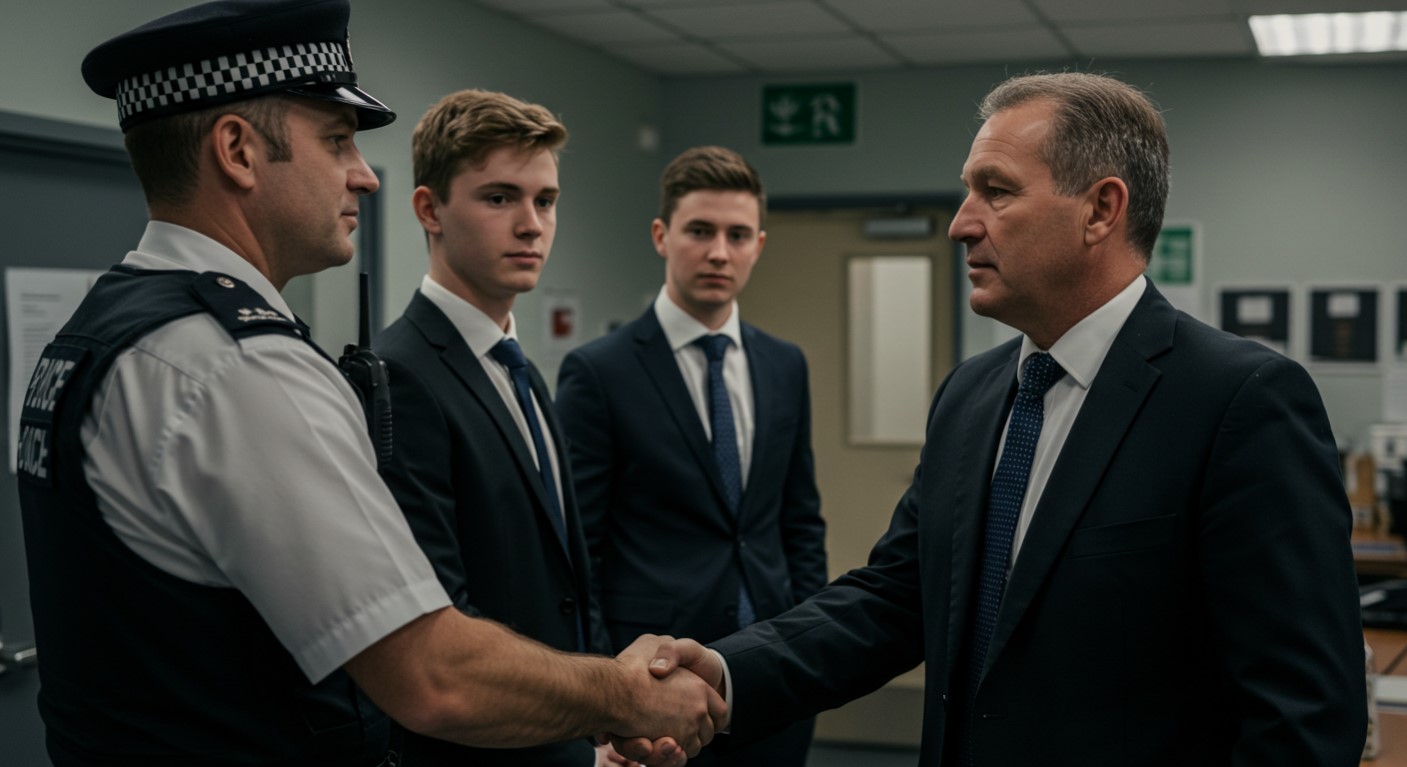
Having an appropriate adult present during a police interview can provide several benefits to both the suspect and the justice system.
- Support: An appropriate adult offers emotional support to the suspect, helping them understand their rights and navigate the legal process.
- Fairness: With an adult present, the interview process becomes more transparent and accountable, ensuring a fair and just interrogation.
- Legal compliance: An appropriate adult ensures that the suspect’s rights are protected, reducing the risk of false confessions or unlawful treatment.
- Communication: They bridge communication gaps between the suspect and the police, ensuring that all parties understand each other.
- Confidence: Having an appropriate adult present can help the suspect feel more confident, which may result in a clearer and more accurate account of events.
Frequently Asked Questions
What is the role of an Appropriate Adult during a police interview?
An Appropriate Adult is a person called to a police station to be present during the police interview and key stages of investigations for vulnerable individuals, such as those under 17 years old or with learning disabilities or mental health difficulties.
What are the key roles and responsibilities of an Appropriate Adult?
The Appropriate Adult’s role is to safeguard the rights and welfare of young people and vulnerable adults in custody. Their key roles and responsibilities include ensuring the person understands their rights, facilitating communication, and ensuring their welfare is protected.
Who can be an Appropriate Adult?
An appropriate adult can be a parent, guardian, or someone from Social Services or a key worker. They can be a carer, relative, or a trained person.
Can an Appropriate Adult provide legal advice during a police interview?
No, the appropriate adult should not provide legal advice. They are there to support and ensure fair treatment and respect for the individual’s rights, but they cannot provide legal advice.
How is the need for an Appropriate Adult assessed?
When the police request an appropriate adult, they usually approach Social Services, who will assess the need for an appropriate adult and why a parent or guardian cannot attend. In some cases, another professional, such as a key worker, may be agreed upon.
What information should the person acting as the Appropriate Adult gather before attending the police station?
Prior to attending the police station, the person acting as the appropriate adult should contact the local Youth Justice Team to gather information about the detained young person’s needs or difficulties. They should also keep the young person’s social worker and those with parental responsibility informed about the police investigations.
Notice: Informational Content Disclaimer
The content provided on this website, including articles, blog posts, and other informational materials, is intended for general informational purposes only. It is not intended as, and should not be considered, legal advice.
Visitors to this website should be aware that the information presented here is not a substitute for seeking legal advice from a qualified solicitor or legal professional. Each individual's legal situation is unique, and the information provided may not be applicable to specific circumstances.
If you require legal advice or have specific legal questions, we encourage you to contact us directly. Our experienced team of solicitors is here to assist you with your legal needs and provide tailored advice to address your concerns.
Please be advised that any communication through this website, including the use of contact forms or email, does not create a solicitor-client relationship. Confidential or time-sensitive information should not be sent through this website. To establish a solicitor-client relationship and discuss your legal matters in detail, please contact us for a consultation.
We strive to provide accurate and up-to-date information, but we make no representations or warranties regarding the accuracy, completeness, or suitability of the information contained on this website. We shall not be liable for any reliance placed on the information provided herein.
Thank you for visiting our website. We look forward to the opportunity to assist you with your legal needs.




